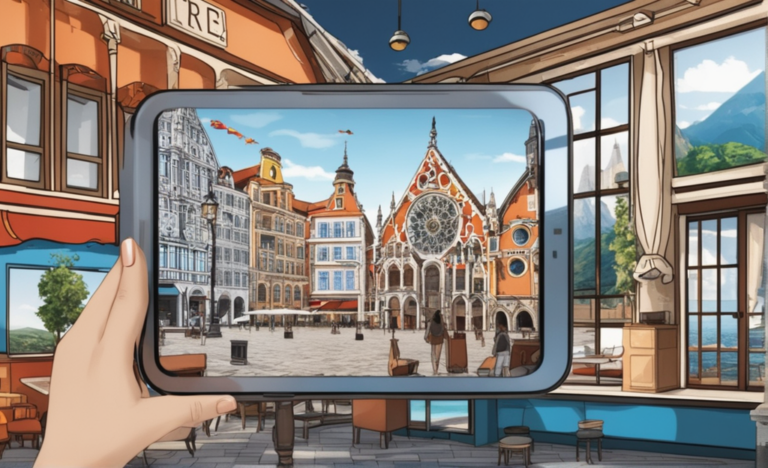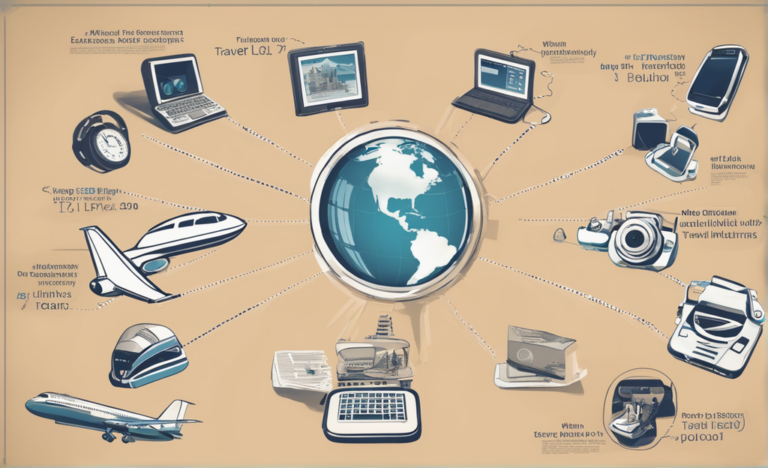Navigating the Downsides: Disadvantages of Technology in the Travel and Tourism Industry
The travel and tourism industry has undergone a profound transformation in recent years, thanks to the rapid integration of technology. From booking flights and accommodations to researching destinations and navigating unfamiliar terrains, technology has made our adventures more accessible and convenient. However, like any double-edged sword, there are disadvantages to this digital revolution. In this article, we’ll delve into some of the challenges posed by technology in the travel and tourism sector.
1. Over-reliance on Screens
The most obvious downside of technology in travel is the over-reliance on screens. We’ve all seen it – people glued to their smartphones or tablets, missing out on the beauty and serendipity of their surroundings. Instead of engaging with locals or immersing themselves in new cultures, travelers may find themselves trapped in a digital bubble, disconnecting them from the very essence of travel.
While maps and navigation apps are valuable tools, they can also discourage exploration and spontaneity. Many travelers today stick rigidly to GPS directions, missing hidden gems and unique experiences that can only be found off the beaten path.
2. Privacy and Data Concerns
With the advent of technology, travelers are constantly sharing their personal data, from booking flights and hotels to posting location-tagged photos on social media. This comes with significant privacy risks. Hackers and cybercriminals are always on the lookout for opportunities to steal personal and financial information.
Additionally, travel companies often collect and store vast amounts of customer data. While they claim this is for personalization and improved services, it can raise concerns about how that data is used and whether it’s adequately protected.
3. Impact on Local Businesses
While technology has streamlined the booking process for travelers, it has also disrupted traditional travel agencies and local businesses. Many brick-and-mortar travel agencies have struggled to compete with online booking platforms, leading to job losses in the industry. Smaller, locally-owned accommodations and restaurants may also suffer as global hotel and restaurant chains dominate online booking platforms.
4. Overtourism and Environmental Concerns
Technology has made it easier for travelers to discover new destinations, leading to the rise of overtourism in some areas. Popular landmarks and cities are often overcrowded, causing environmental strain, cultural degradation, and a decline in the quality of life for local residents.
Furthermore, the environmental impact of technology in travel is significant. The aviation industry, for example, contributes to carbon emissions, and the increasing demand for air travel driven by online booking platforms exacerbates this issue. E-ticketing and paperless travel documents may reduce waste, but the energy consumption of data centers and the carbon footprint of the travel tech industry cannot be ignored.
5. Loss of the Human Touch
The personalized service and human interactions that travelers used to enjoy at hotels, restaurants, and other establishments have been eroded by technology. Automated check-in kiosks, self-service counters, and chatbots have replaced human staff in many instances. While this can reduce costs for businesses, it often results in a less personal and less memorable experience for travelers.
6. Dependency on Internet Connectivity
While technology has made it easier to stay connected while traveling, it has also created a dependency on internet connectivity. Travelers rely on Wi-Fi and mobile data for navigation, communication, and accessing essential information. In remote or less-developed areas, a lack of connectivity can be a major challenge, leaving travelers feeling isolated and helpless.
7. Disruption Due to Technical Issues
Technology is not infallible, and technical glitches can disrupt travel plans. Flights can be delayed or canceled due to software problems or network outages. Reservation systems can crash, leaving travelers stranded without accommodations or transportation. Such incidents highlight the vulnerability of a tech-dependent industry.
8. Loss of Serendipity and Authenticity
In the quest for efficiency and convenience, technology has taken away some of the serendipity and authenticity that made travel so enchanting. Pre-planned itineraries and meticulously researched destinations leave little room for spontaneous discoveries and genuine cultural experiences.
While technology has undoubtedly transformed the travel and tourism industry, it comes with its share of disadvantages. From the overuse of screens to privacy concerns, environmental impacts, and the erosion of local businesses, these drawbacks cannot be ignored. It’s essential for travelers and the industry as a whole to strike a balance between embracing technology and preserving the true essence of travel – the exploration of the unknown and the genuine connections with people and places. By being aware of these challenges, we can work towards a more sustainable and enriching future for travel.

